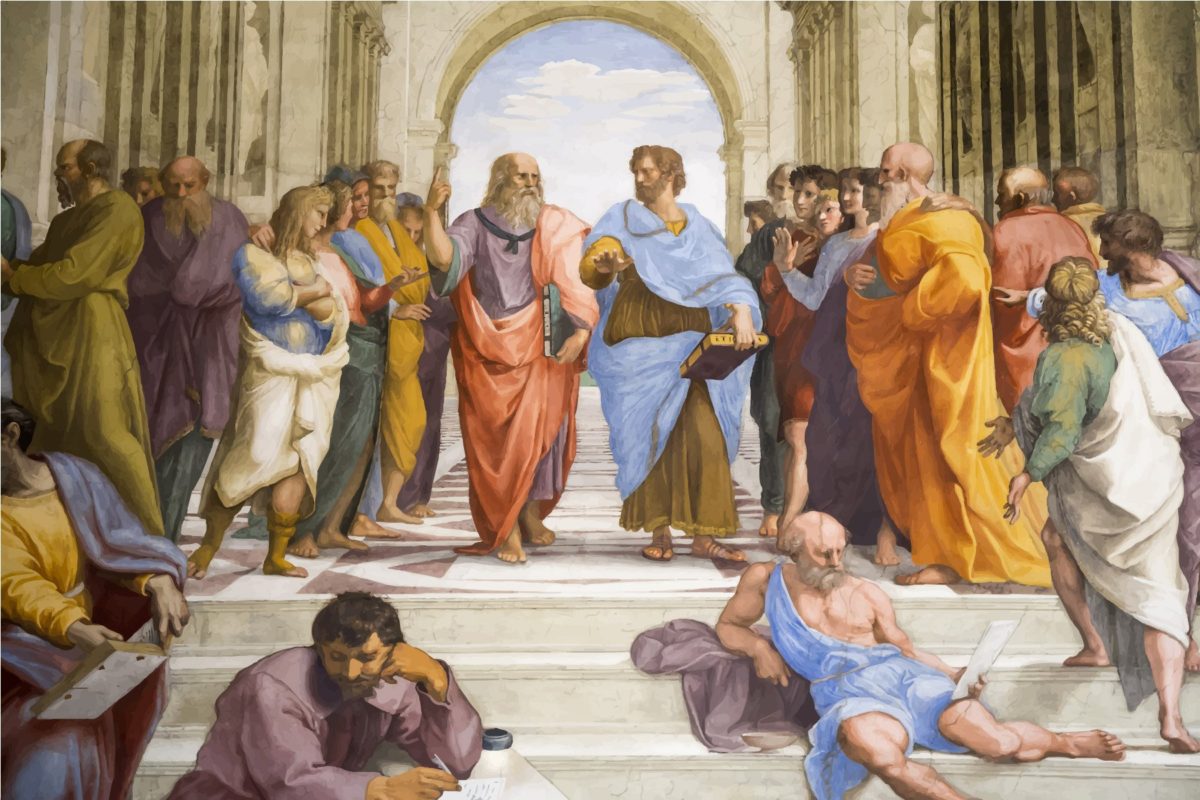I began from Faith and Understanding, first, and then out of curiosity used Reason and Logic to derive the following. (My Faith)
Herein is a working list of my own personal list of first principles by which I attempt to measure all else. (PDF version here)
- The same thing cannot be affirmed and denied at the same time.
- Nothing comes from Nothing.
- We exist. “I reflect therefore I am.” (Cartesian Dualism)[1]
- The universe exists. The Universe Began to Exist (Confirmed by scientific evidence) (2.a.)
- The Universe did not necessarily have to exist. (Cosmological Argument from Contingency)[2]
- But the universe does exist, and observations of the universe must be compatiblewith the conscious and sapient life that observes it.[3] (Anthropic Principle)[4]
- Everything must have a reason or a cause. (Principle of Sufficient Reason);[5] Anything that has a beginning must be caused by something else (Affirmed by the Principal of Causality)[6]
- There is/are a creator (G)god(s).
- Argument from First Cause
- Teleological Argument[7]or Design Argument
- Cosmological Argument[8]
- Argument from Reason[9]
- Universal, ultimate truth exists, partly revealed by special revelation and partly by general revelation. Some truths are discoverable by either reason or empiricism and some truth is ineffable.
- Natural Moral law exists and is written into the spirit of all men in all time.[10]
- The cosmos consists of the material and the spiritual, both comprise reality. There are elements we can sense, feel and know, others we only vaguely perceive, and other parts are presently unknowable. Reality consists of the totality of material and spiritual existence.
- Imperfection Abounds - free-will (contingent truth), the nature of man, the existence of evil.
- There exists a Transcendent Order.
- The God of the Bible is most likely the true God.[11]
- Aligns best with the Natural Moral law
- Historical evidence in support of Biblical narrative
- Provable accuracy and authenticity of the Biblical text[12]
- Christianity is a “permanent thing” of Western and American civilization and culture.[13]
- Christian metaphysical realism[14] has formed the basis of the worldview of most ordinary people living in the West and in America in particular. (Right-reason[15], Common-sense[16], Metaphysical Realism, axiom #6 plus Christian theological worldview)[17]
- Social Continuity is Good.
- The family is the foundation of civilization.
- Good government, in both form and liberties, conforms to the culture and traditions of the people it governs.
- Any worldview, theory or ideology that denies the existence of universal truth is irredeemably flawed and leads to bad ends.[18]
- Classical liberalism was flawed from the outset because of erroneous theories related to the state of man in nature.[19]
- Modern progressive public policy is flawed because it may be traced back to the German school of philosophical idealism.[20]
- Public policy, throughout most of the history of the West, as well as a large swath of American and later U.S. history, was based upon Christian Metaphysical Realism, axiom #11.
- Secular progressive idealism is opposed to and in conflict with Christian metaphysical realism.
- Secular progressive idealism has failed in every instance it can be measured.
- Man is a more than an economic creature. Man find happiness in family, community, purpose, and challenge and ultimately in a connection with his creator.
- Economic progress, absent considerations for the things man truly seeks and needs, breeds decadence, sloth, greed, avarice, and depression.
[1] https://www.allaboutphilosophy.org/cartesian-dualism-faq.htm
[2] Leibniz’ Contingency Argument, https://www.youtube.com/watch?v=FPCzEP0oD7I
[3] The Fine-Tuning of the Universe, https://www.youtube.com/watch?v=EE76nwimuT0
[4] William Lane, “The Teleological Argument and the Anthropic Principle,” n.d., https://www.reasonablefaith.org/writings/scholarly-writings/the-existence-of-god/the-teleological-argument-and-the-anthropic-principle/.
[5] Yitzhak Melamed and Martin Lin, “Principle of Sufficient Reason,” in The Stanford Encyclopedia of Philosophy (Stanford University, 2016), https://plato.stanford.edu/archives/spr2018/entries/sufficient-reason/.
[6] J. Warner, “Is God Real? How the Principle of Causality Points to the Existence of God,” Cold Case Christianity, 2018, https://coldcasechristianity.com/writings/how-the-principle-of-causality-points-to-the-existence-of-god/.
[7] The Teleological Argument, https://carm.org/teleological-argument
[8] Cosmological Argument, https://barryclark.info/cosmological-argument/
[9] V Reppert, C. S. Lewis’s Dangerous Idea: In Defense of the Argument from Reason (InterVarsity Press, 2009), https://books.google.com/books?id=iQuoWpUCuWcC.
[10] Luiz Solimeo, “Eternal and Natural Law: The Foundation of Morals and Law,” The Americaon Society for Defense of Tradition, Family and Property, 2008, https://www.tfp.org/eternal-and-natural-law-the-foundation-of-morals-and-law/.
[11] Barry L. Clark, A Commonsense Case for Christianity, Commonsense (North Augusta: barryclark.info, 2019), https://books.google.com/books?id=gErBDwAAQBAJ.
[12] The Bible – Facts, https://barryclark.info/the-bible-facts/
[13] Russell Kirk, Enemies of the Permanent Things: Observations of Abnormality in Literature and Politics (Arlington House, 1969), https://books.google.com/books?id=xLCBAAAAMAAJ.
[14] Christian Metaphysical Realism, https://barryclark.info/topic-index/christian-metaphysical-realism/
[15] Right Reason, https://barryclark.info/topic-index/right-reason/
[16] Western Tradition of Common-Sense, https://barryclark.info/topic-index/western-tradition-of-common-sense/
[17] Barry L. Clark, The Philosophy of Commonsense: A Cultural War Primer (Abbeville: The Calhoun Institute, 2019), https://books.google.com/books?id=CK6-DwAAQBAJ.
[18] Barry L. Clark, “From Radical Progressivism to Authoritarianism,” SSRN Electronic Journal, 2019, https://doi.org/dx.doi.org/10.2139/ssrn.3506918.
[19] How Locke and Hobbes Were Wrong: State of Nature, https://barryclark.info/how-locke-and-hobbes-were-wrong-state-of-nature/
[20] Barry L. Clark, “The Rise of Absurdity in Western Philosophical and Political Views,” SSRN Electronic Journal, 2020, https://papers.ssrn.com/sol3/papers.cfm?abstract_id=3523995.


